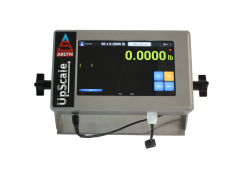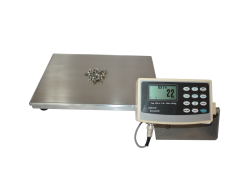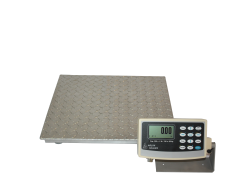
Batching is a complex manufacturing process in which as many as several dozen diverse ingredients must be mixed in exact proportions. Often, batching is a multi-station process where each stage makes the product in question more complete.
In today’s competitive commercial landscape, precision in batch weighing systems is a necessity. Whether it’s in the pharmaceutical, food processing, or chemical industries, the accuracy of your batch weighing process can significantly impact product quality and operational efficiency. In this article, we’ll explain why scales are such a key piece of equipment for this production process.
Understanding Batch Weighing Systems
Batch weighing systems measure the weight of ingredients before mixing or processing. This step is critical in ensuring the consistency and quality of the final product, particularly when handling bulk materials. The precision of these systems is not just a matter of accuracy but a vital factor in maintaining the integrity and reliability of the end product.
In industries like pharmaceuticals, the role of precise batch weighing cannot be overstated. It ensures the correct formulation of medications, directly impacting their efficacy and safety. In food processing, accurate batch weighing is crucial for maintaining flavor consistency, nutritional content, and adherence to strict regulatory standards. Similarly, in chemical manufacturing, weigh batching systems are indispensable in maintaining exact chemical compositions, a key aspect for ensuring safety and effectiveness.
Weighing Scales for Batch Processing: How Does It Work
Many of the elements of batch production are handled by weighing materials, as are final QA processes which are achieved by weighing operations. Often, the weighing equipment will have other sensors to gather measurements beyond weight. The design of the scale itself makes this possible.
Sometimes this process involves joining weight sensors to a bin, bucket, or the like and then delivering the signal to a digital indicator or similar device to achieve these measurements. This eliminates the need to manually weigh each ingredient before discharging and processing it, a time-consuming and occasionally inexact procedure in which many plants still engage.
Automation is one of the best ways to ensure consistency and efficiency in your production process. However, you need the right hardware and software to make it work for you.
Types of Scales Used in Batch Weighing
When it comes to batch weighing, the choice of scale can significantly impact the efficiency and accuracy of the process. Understanding the various types of scales available is crucial for selecting the right one for your specific needs.
Platform scales are commonly used in industrial settings for their robustness and ability to handle large quantities of materials. They are ideal for weighing bulk material and heavy items, making them a staple in environments where large batches are processed.
Drum scales, on the other hand, are designed for precise weight measurements of liquid materials. Their design caters to the unique challenges of liquid weighing, ensuring accuracy even in fluctuating conditions.
In selecting the right scale for your batching process, several factors come into play. Accuracy is paramount, especially in industries where even the slightest deviation can have significant consequences. The capacity of the scale must align with the volume of materials typically processed in your operations. Additionally, the environmental conditions of your facility, such as the presence of moisture or chemicals, should influence your choice, as they can affect the scale’s functioning and longevity.
Each type of scale offers specific advantages in batch processing. The key is to match these advantages with your operational requirements to enhance both the precision and efficiency of your batching systems.
Ideal Design Elements for An Automated Weigh Batching System
Ideally, an automated batch weighing scale will integrate connections, valves, process control software, a load cell, and relay hardware into a single system that is then incorporated into a scheme designed to deliver the varied ingredients to a container in which those ingredients will be blended.
Measuring Temperature: A Common Element of Batch Production
Temperature is a key element for many chemical reactions (including those in baking, for example), which is why the best scales for this purpose can measure and control temperature conditions in the container.
Industrial Digital Filling Scales: How to Create A Mix of Multiple Ingredients
Industrial digital filling scales can be used for basic batching operations when many different ingredients are used. For each ingredient, a separate set point value is assigned. The set point output stops after the first level is completed the second begins, and so on. Scales with this function include floor scales, drum scales, and platform scales.
Arlyn Scales offers several accessories on scales that help you build the data infrastructure you need to collect, store, and transfer your measurements, and the hardware you need to use these measurements in your production process.
Storing and Reproducing Formulas with Digital Industrial Filling Scales
Digital industrial filling scales with batching functions often have memory capabilities, so these formulas can be saved and used again. Sometimes as many as a hundred formulas can be stored in a single scale, making it a versatile tool that can accommodate an evolving production process.
These types of scales usually come standard with an RS-232 connection, but since that requires close proximity to a computer, they are more frequently being outfitted with…
- USB (Universal Serial Bus)
- Ethernet ports
- Wifi
…and more available options.
All batch, formula, and weight data are downloaded onto the drive, and then a thumb drive can be delivered to any computer system and exported into spreadsheets or data tables. With an Ethernet connection, the digital filling scale is hooked up to the facility’s network. Information can be recorded remotely and, using software, the scales can be operated from a distance.
Building A Network of Scales with Shared Data
Several of our electronic scales can be networked together to work in unison and share data. This technology improves quality through accuracy and consistency.
Digital indicators for industrial scales can also perform batching operations. These programmable indicators are often high-resolution and easy to set up and use. A model with a numeric keypad is ideal and can be used to enter and track set points for batching, as well as tare information, unit conversion, label layouts, and descriptions of parts (for parts counting).
There are two different types of batch weighing modes: normal and loss in weight batching. Loss in weight batching is a method in which the container is weighed when the batch is started.
Dispensing of the ingredient is stopped when the target weight is reached. Some digital indicators have high sampling speeds of up to 70 times per second. The same USB and Ethernet technology is available for digital indicators. If the digital indicator will be used in a harsher environment, consider a special casing that will be shock-absorbent and waterproof.
Learn More About Platform Scales for Your Manufacturing Facility
Arlyn Scales is a leading manufacturer of industrial scales for facilities of all kinds. We design cutting-edge load cells and scale technology to create scales that are more accurate, more reliable, and longer lasting.We’ve outfitted an incredible number of manufacturing facilities with scales that have improved their functions and operations. We can offer guidance on prices, options, and necessary upgrades. Contact us online, where you can browse through our batch weighing scales, not to mention the sizes, capacities, and upgrades we offer.




